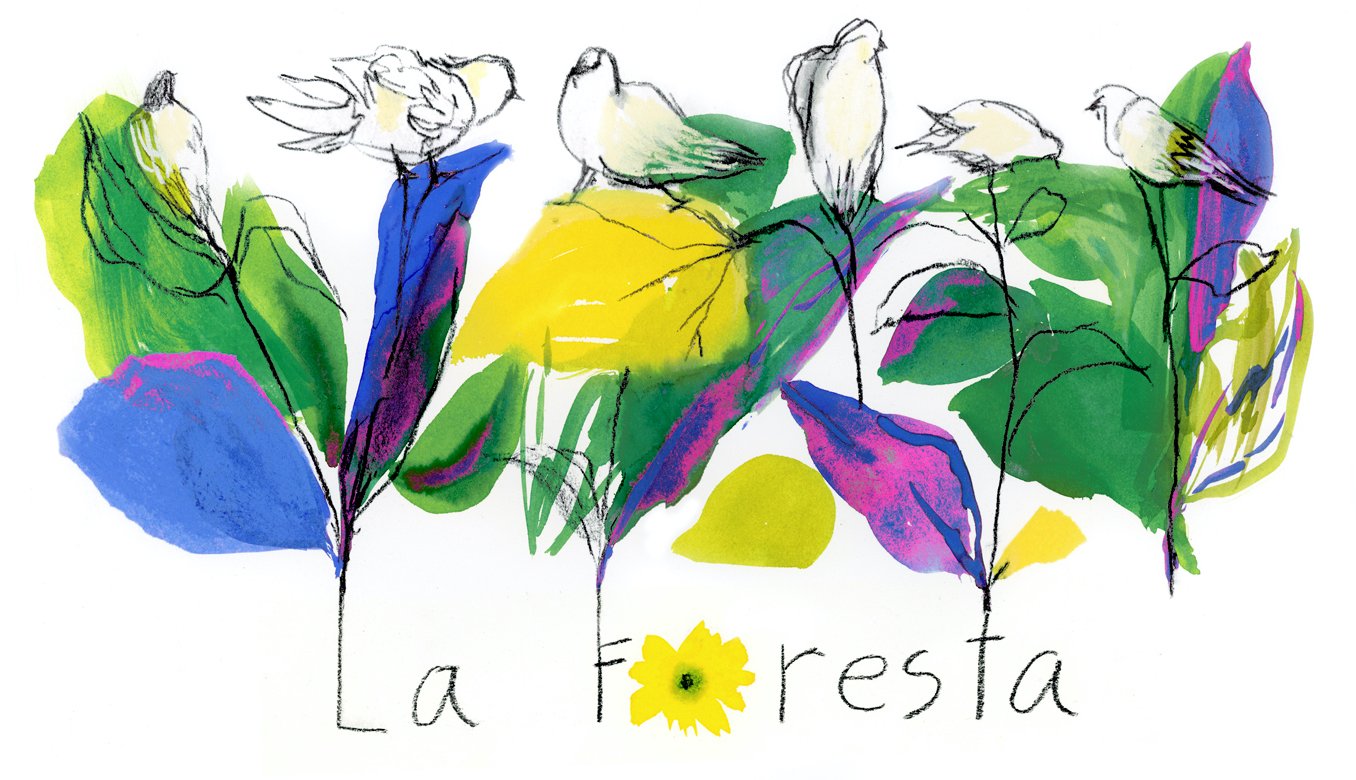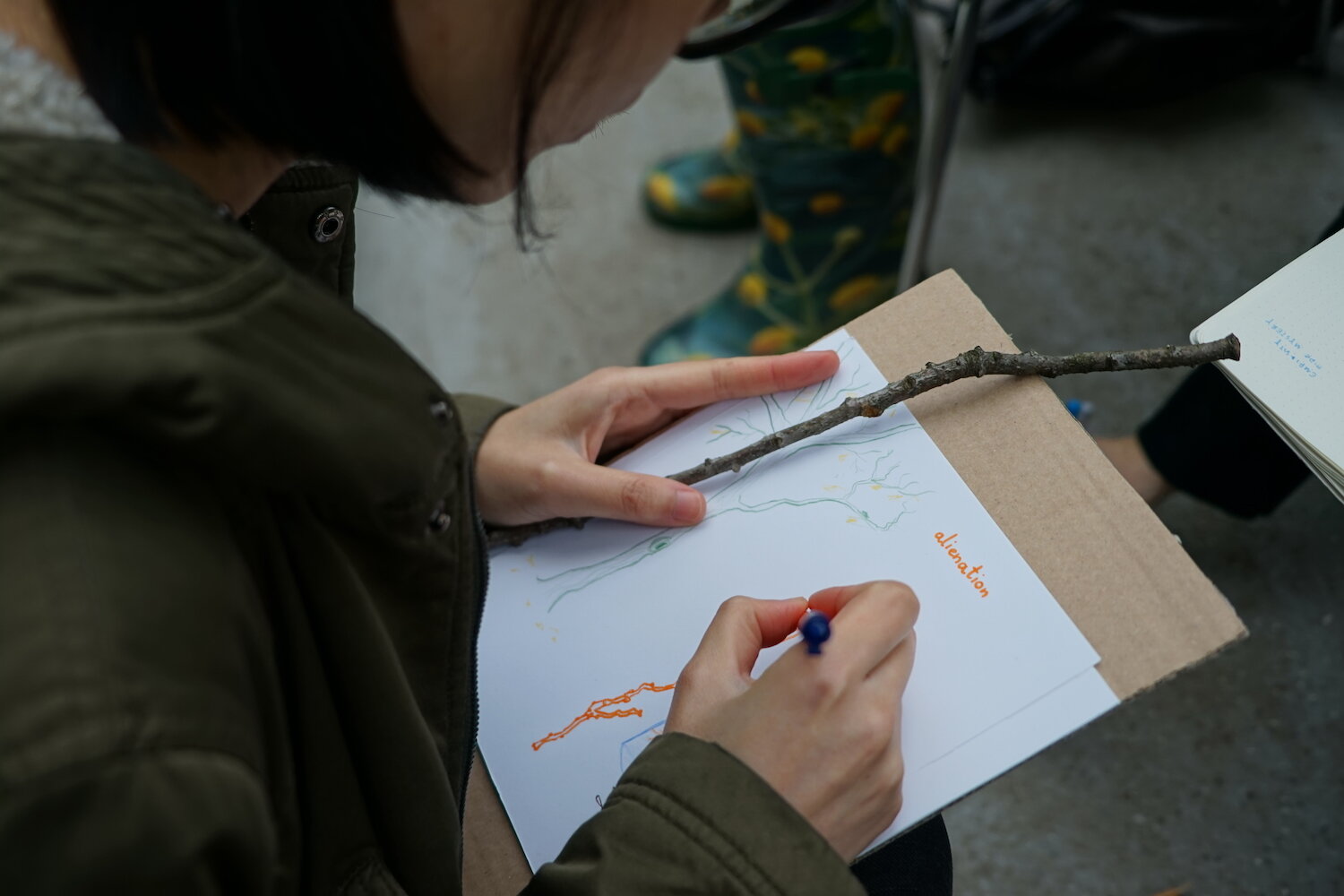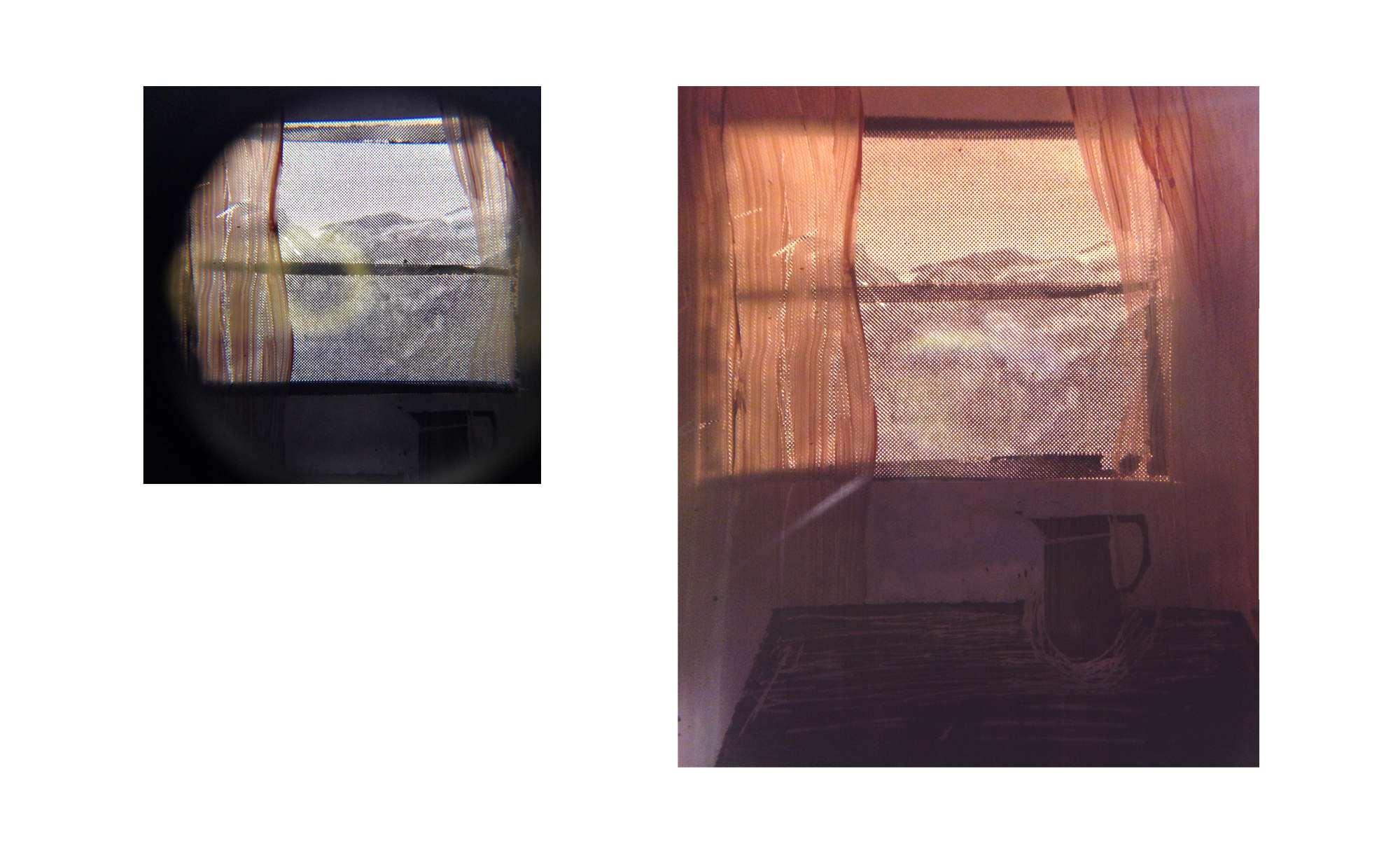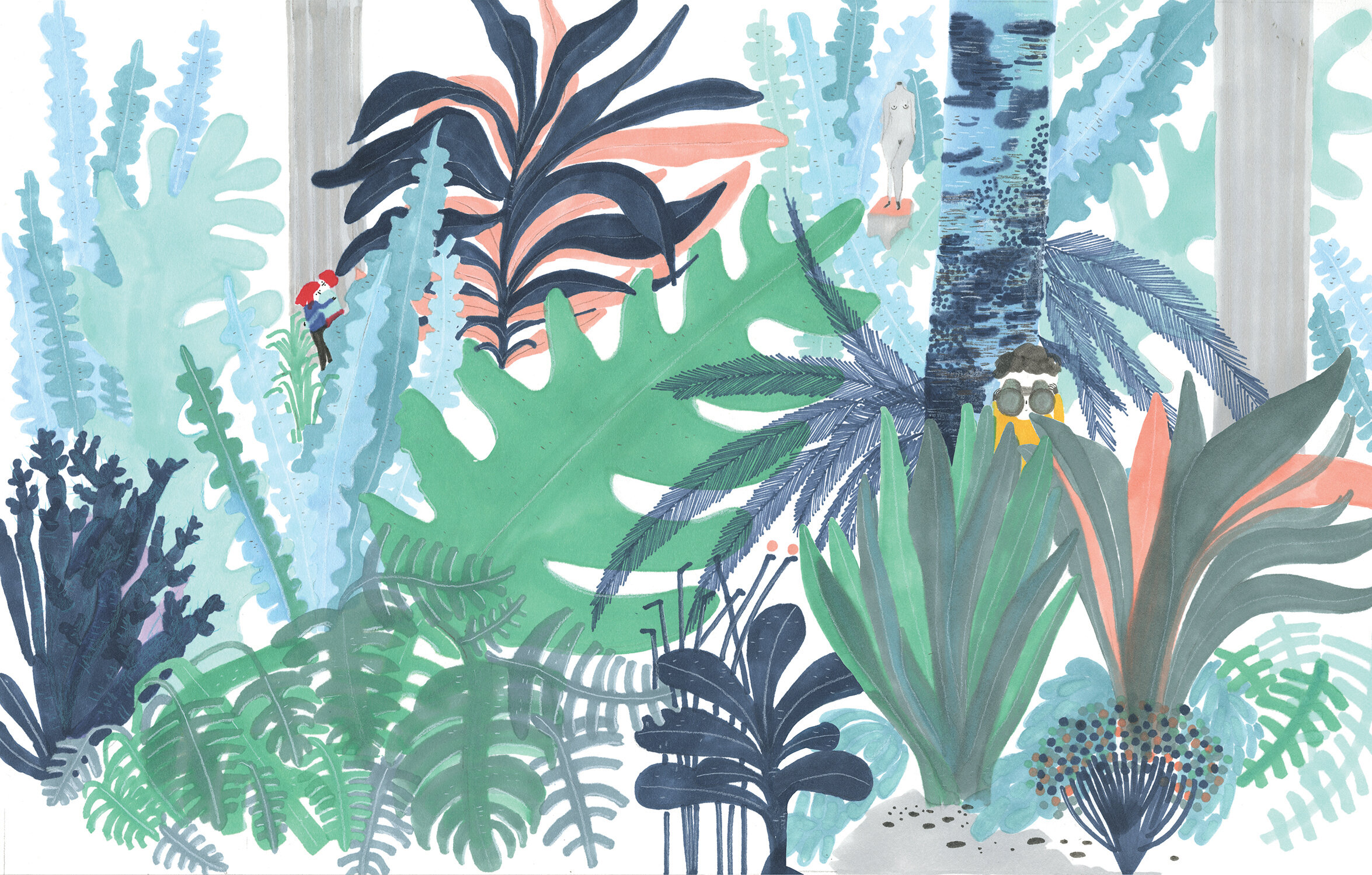Books of Forests
a poetic journey into ecologies, inner and outer
Books of Forests series unfolds as a practice of attention to forests out there and inside. We work with contemplative practices, drawing, embodied inquiry, collective reflection, book-making, and storytelling.
Module 1
During this workshop, museum becomes a space that supports participants in representing a world as their own. Participants are offered to construct their narratives where artworks render a point of departure and an impulse for a more personal journey. Looking through an artwork participants search for threads into their own lives. Rather than speculating around what the artist wanted to say, we bring the experience to a more subjective level of a viewer, to learn about how we pay attention, make associations and connections. Participants are invited to make miniature “personal museums”. Read more about Personal Museum here >>
Module 2
Cities are kind of museums for contemporary nature. They reflect our connectedness to natural environments. The islands of parks, lone-standing trees, patches of earth here and there… Even these little pieces of nature in the city remind us of forests out there and of our wild origins. Even if they seems far and asleep in our human-made and human-centered environments, those trees are still looking at us through keyholes and windows, they still touch our shoulders sometimes when we pass them by, hoping we will notice them and remember… This workshop will involve interaction with trees, plants and other inhabitants of the park, and making a book about them.
Module 3
Inner forests are vast and wild. They cannot be diminished to a set of definitions. Some parts of those forests are already explored, some have never been stepped into. In this part of the workshop we explore connection with ourselves and inner nature. We will be documenting these encounters by making books. The guiding frame of the workshop as a general direction will be “sensing where you stand and what you stand for”. A study into diversity and attribution of value. This workshop will echo with our upcoming Woods in the City event, dedicated to re-thinking value and importance of resonances. (Here you can see a first draft. Please note this page is not yet published for public and just gives a general idea of the upcoming research-in-public).
Context
We think of sustainable ecologies as a balanced wellbeing in co-existence, human and more-than-human. Physical wellbeing cannot be separated from the emotional, mental, social, or environmental. Human wellbeing is inevitably connected to the wellbeing of the world around: the quality of water, air, soil, food, as well as relationships with others, humans and non-humans we come in contact with. This workshop builds a link between personal, relational and environmental ecologies and offers practices to integrate this mindset into the everyday life for a long-term commitment. Its main tools are: embodied inquiry, walks, conversations, arts practice, such as drawing, painting, book-making, writing, and other means of telling stories. It aims to raise attention and care for nature, inner and outer.
In this workshop, drawing and book-making become means for personal and collective reflection. Participants create own books on the subject of ecologies through a personal inquiry to deepen the intuitive, cognitive and experiential perception of the natural environment as well as of one’s sense of self. This allows for each person to approach the subject in a way that is imaginative and suitable to their own context. To ask questions like, what does ecology mean to me in my life? How to best take care of the inner and outer forests in small everyday acts? What would it be like to live in a world where everyone took practices of care to the heart?
Journeying into natural and cultural ecologies within which we live, the workshop aims to respond to the crisis of imagination, to invite participants to engage with questioning representations and narratives coming from the hegemony of placing value, personally and collectively. It offers a framework for learning that involves unlearning and re-imagination, based on holistic qualities of attention and embodied culture.
Illustrations: Carolina Celas
Books of Forests with Foresta Kids















